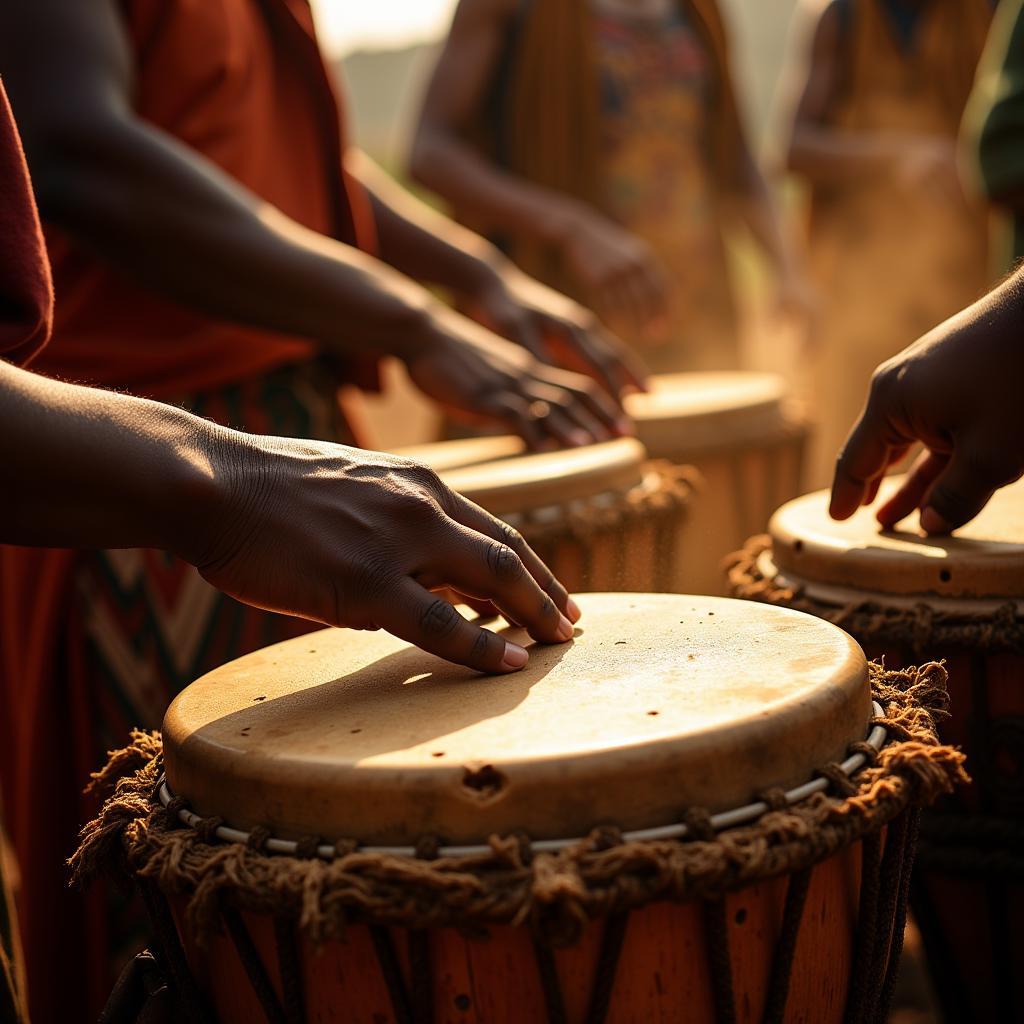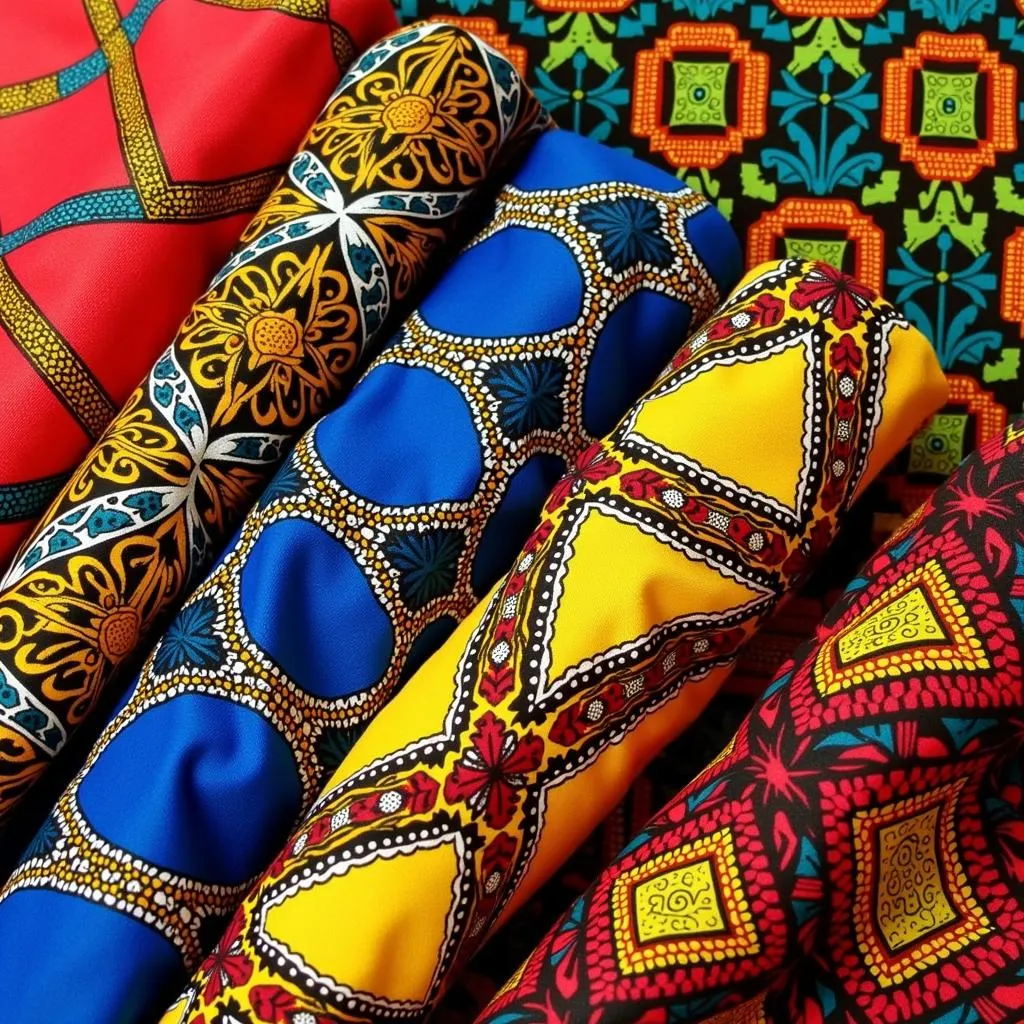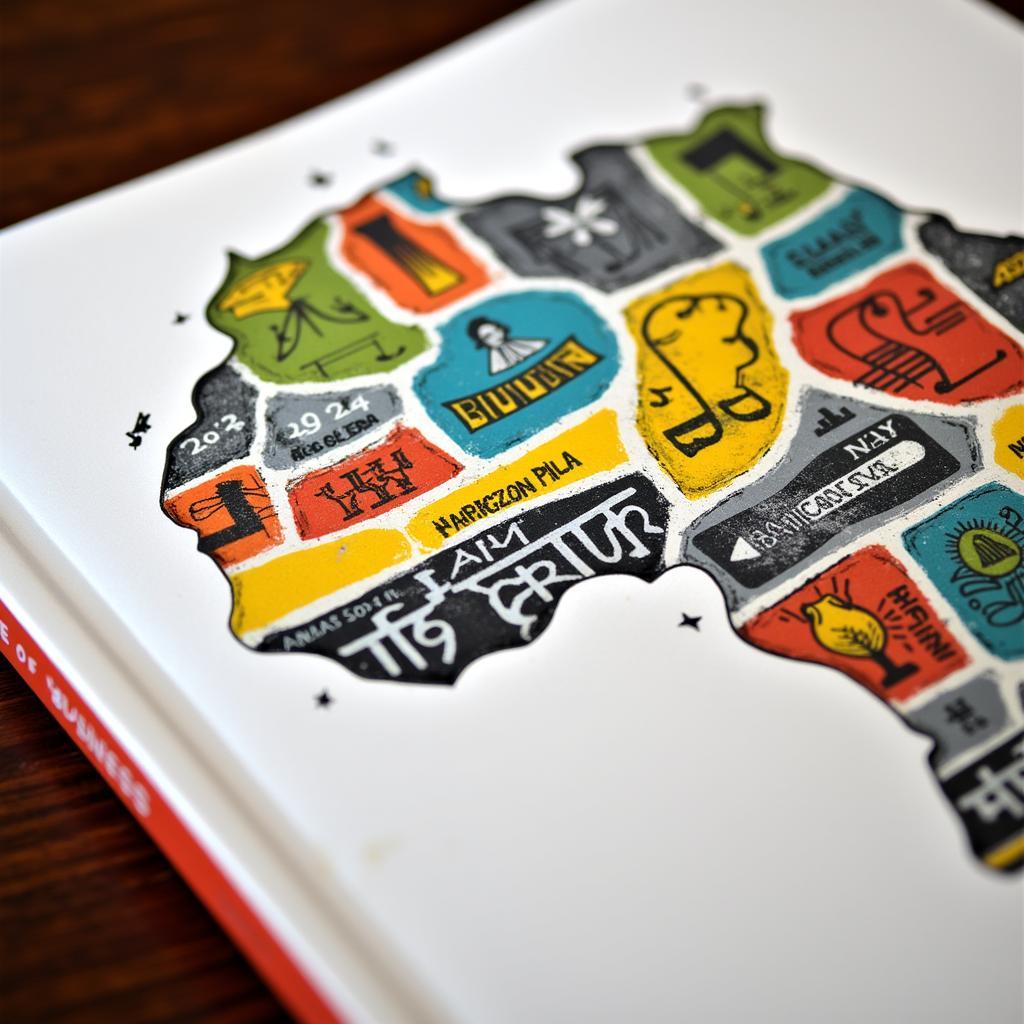The African Goat Weight: A Comprehensive Guide
When we think of Africa’s wildlife, majestic lions, towering giraffes, and massive elephants often come to mind. Yet, there’s another fascinating creature that plays a crucial role in the continent’s landscape and livelihoods: the African goat. Often overlooked, these resilient animals are a source of food, income, and cultural significance for millions across Africa. One question that often arises, particularly for those involved in agriculture and livestock farming, is, “What is the average African Goat Weight?” This comprehensive guide delves into the factors influencing African goat weight, breed variations, and the importance of understanding this aspect for sustainable goat farming practices.
Factors Influencing African Goat Weight
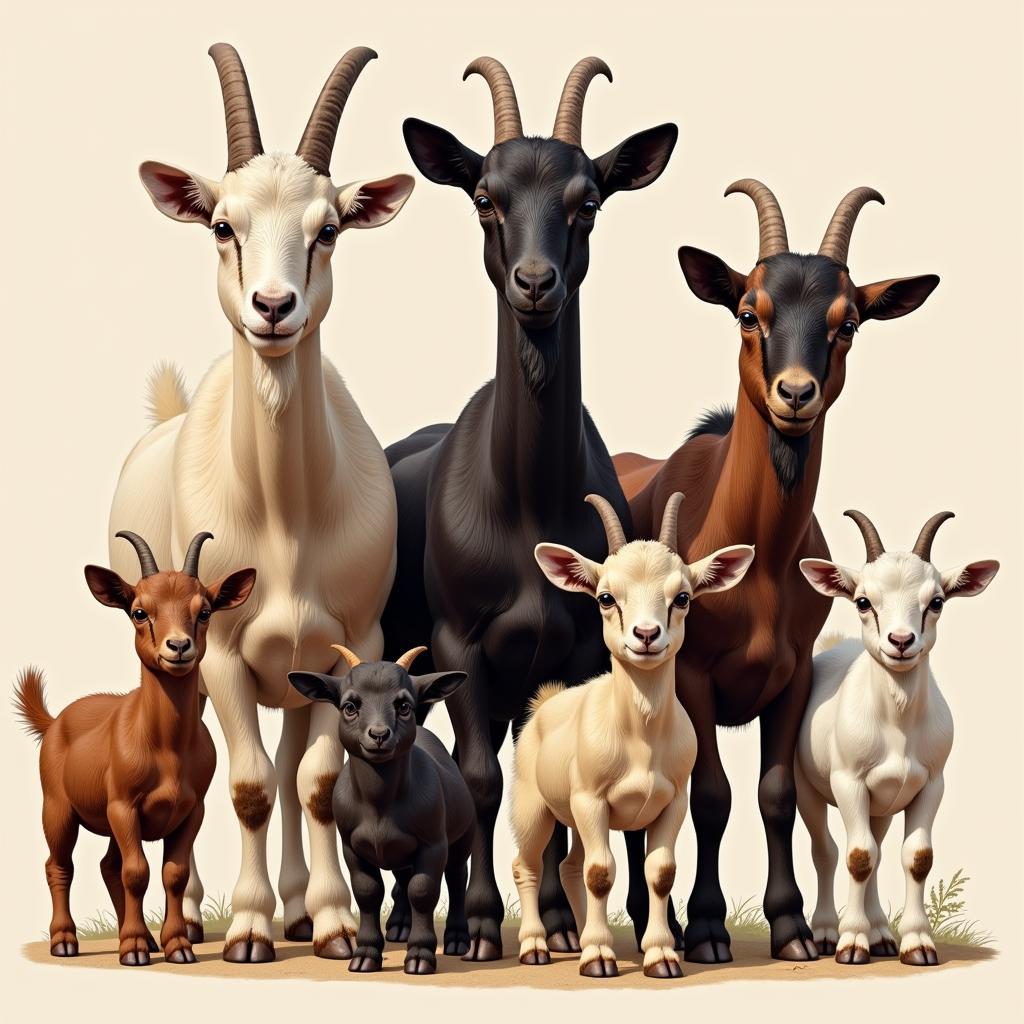 African Goat Breeds and Weight Variations
African Goat Breeds and Weight Variations
The weight of an African goat is not a one-size-fits-all answer. Just like any other livestock, a multitude of factors contribute to their overall size and weight.
- Breed: This is perhaps the most significant factor. Africa boasts a wide array of goat breeds, each with its unique characteristics, including weight range. For instance, the popular Boer goat, originally from South Africa, is known for its meat production and can weigh well over 100kg. In contrast, the smaller West African Dwarf goat typically weighs between 15-25kg.
- Diet and Nutrition: A balanced and nutritious diet is crucial for healthy growth and weight gain in goats. Access to quality grazing pastures, supplemented with concentrates and minerals, plays a vital role in achieving optimal weight.
- Health: Diseases and parasites can significantly impact a goat’s weight. Regular veterinary check-ups, vaccinations, and proper hygiene practices are essential for maintaining a healthy herd and ensuring good weight gain.
- Environment: Climate and geographical location can also affect goat weight. Goats in harsher, drier climates may have lower average weights compared to those in more temperate regions with abundant food and water.
- Age: Just like humans, goats gain weight as they age. Young kids will naturally weigh less than mature adults.
Popular African Goat Breeds and their Weight Ranges
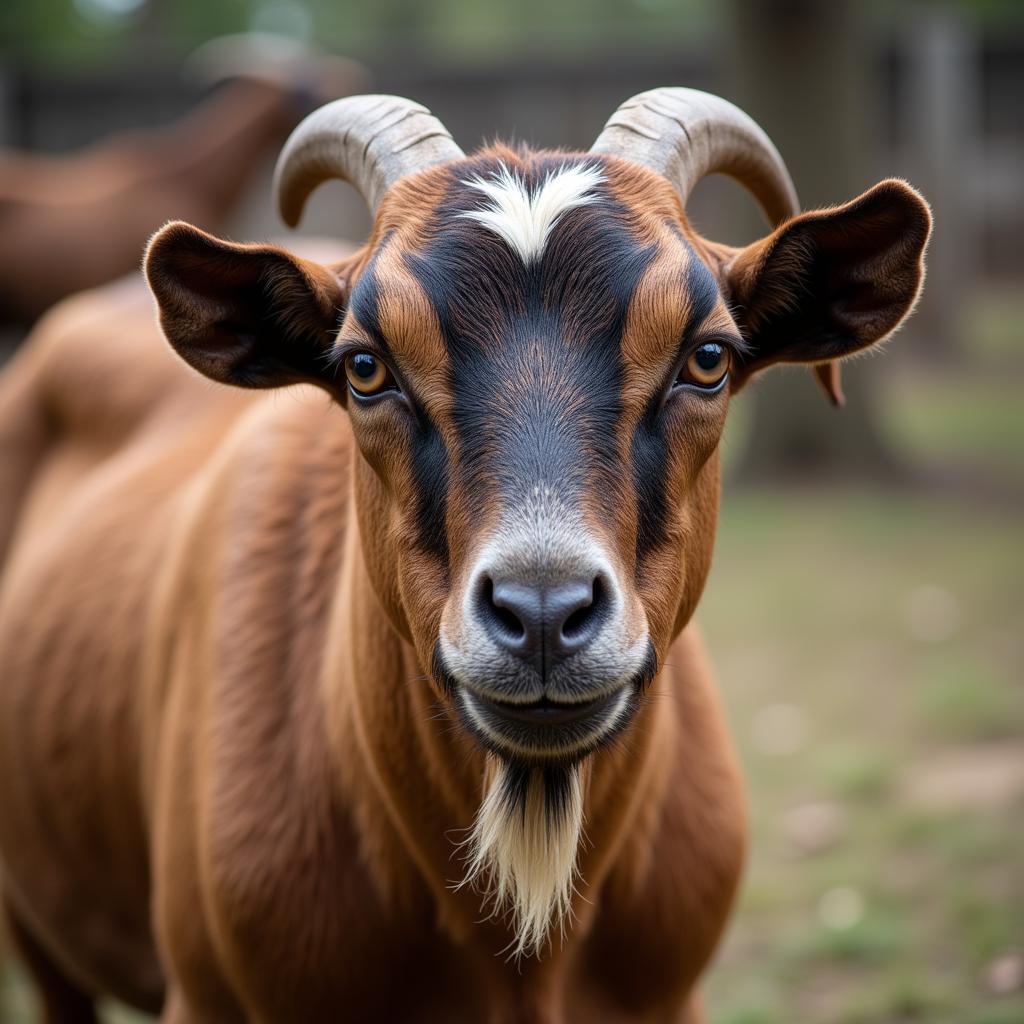 Boer Goat: A Meaty African Breed
Boer Goat: A Meaty African Breed
Understanding the weight variations between different African goat breeds is essential for farmers and enthusiasts alike.
Here’s a glimpse at some popular breeds and their average weight ranges:
- Boer Goat: Males: 110-135kg, Females: 90-100kg
- Kalahari Red Goat: Males: 80-110kg, Females: 55-70kg
- Savanna Goat: Males: 75-90kg, Females: 50-60kg
- West African Dwarf Goat: Males: 15-25kg, Females: 12-20kg
It’s important to note that these are just average ranges, and individual goats within a breed can vary significantly based on the factors mentioned earlier.
The Importance of African Goat Weight in Farming
Why is understanding African goat weight so important, particularly for farmers?
- Meat Production: For farmers focused on meat production, goat weight directly translates to yield and profitability. Choosing breeds known for their meat-producing qualities, like the Boer goat, becomes crucial.
- Breeding and Selection: Knowing the ideal weight range for a specific breed helps farmers select healthy breeding stock, ensuring the production of robust offspring with desirable traits.
- Health Monitoring: Monitoring goat weight is a valuable tool for assessing overall health and well-being. Sudden weight loss can be an early indicator of disease or parasites, allowing for timely intervention.
- Market Value: Goats are often sold based on their weight. Understanding market demands and price fluctuations related to weight helps farmers make informed decisions about breeding, feeding, and selling their stock.
African Goat Weight: Beyond the Numbers
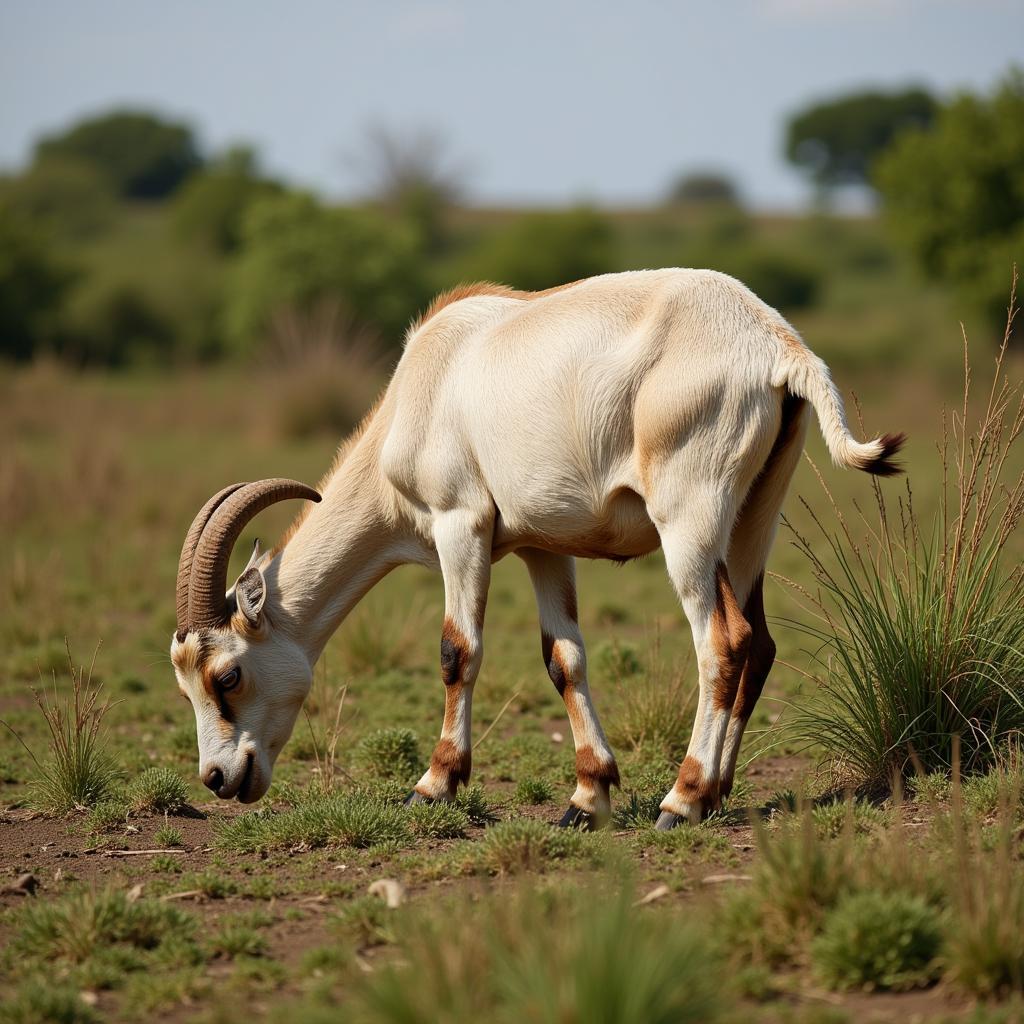 African Goat Grazing in Rural Landscape
African Goat Grazing in Rural Landscape
While understanding the numerical value of African goat weight is essential, it’s equally important to appreciate the broader context. For many rural communities across Africa, goats are more than just livestock; they are a lifeline.
- Food Security: Goats provide a readily available source of protein and essential nutrients, contributing to food security in regions where other food sources might be scarce.
- Income Generation: Goat farming offers a vital source of income for smallholder farmers, particularly women, empowering them to support their families and invest in their communities.
- Cultural Significance: Goats often play significant roles in cultural traditions and ceremonies across Africa, further highlighting their importance beyond their economic value.
Conclusion
The African goat, in all its diverse breeds and sizes, plays an integral role in the continent’s ecological and socio-economic landscape. Understanding the factors influencing African goat weight, from breed variations to nutrition and healthcare, is paramount for promoting sustainable goat farming practices and supporting the livelihoods of millions who depend on these resilient animals.
For those interested in learning more about specific African goat breeds, pricing information, or exploring opportunities in goat farming, valuable resources are available through organizations like the African Goat Improvement Network (AGIN) and various agricultural institutions across the continent. Let’s continue to appreciate and support the humble yet mighty African goat, a true symbol of resilience and resourcefulness.
FAQs about African Goat Weight
1. What is the heaviest African goat breed?
The Boer goat, originating from South Africa, holds the title for the heaviest African goat breed, with males often exceeding 135kg.
2. How fast do African goats gain weight?
Weight gain varies depending on breed, diet, and overall health. However, with proper care and nutrition, some breeds can gain up to 0.5kg per week during their growth phase.
3. Can you eat all breeds of African goats?
While most African goat breeds are raised for meat, some, like the West African Dwarf goat, might be primarily kept for milk or other purposes.
4. What is the average lifespan of an African goat?
The average lifespan of an African goat ranges from 7 to 15 years, depending on breed, health, and living conditions.
5. Where can I buy African goats?
You can find African goats for sale through local breeders, livestock markets, and online platforms specializing in livestock trade.
6. What is the price of an African Boer goat in India?
For information on the price of an African Boer goat in India, you can check out this resource: african boer goat price in pune.
7. Are there African Boer goats for sale in India?
Yes, you can find African Boer goats for sale in India. Here’s a helpful link: african boer goats for sale.
Exploring Further: African Goat Farming
Interested in delving deeper into the world of African goat farming?
- African Goat Farm in Maharashtra: Learn about African goat farms in India: african goat farm in maharashtra
- African Boer Goat in India: Discover the presence and impact of African Boer goats in India: african boer goat in india
- African Bor Gots Rate of 1 kg: Find information about the rate of African Boer goats per kg: african bor gots rate of 1 kg
This additional information provides valuable insights for anyone curious about African goat farming practices and market trends in India.
Need Assistance with Your African Goat Venture?
We are here to support your journey in the world of African goats. If you have any questions, require further guidance, or need assistance with sourcing goats, feel free to contact our dedicated team.
Contact Information:
- Phone: +255768904061
- Email: [email protected]
- Address: Mbarali DC Mawindi, Kangaga, Tanzania
Our team of experts is available 24/7 to provide you with the information and assistance you need.
